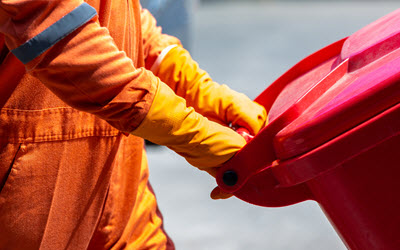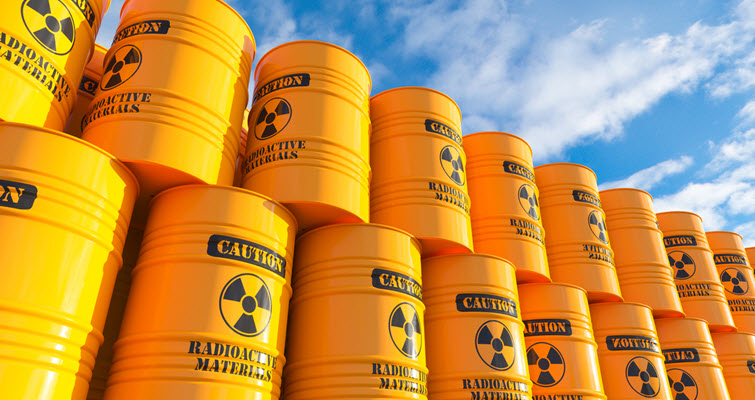Waste made from toxic chemicals is known as chemical or hazardous waste. Hazardous waste can be either solid, liquid, or gaseous, and display hazardous characteristics or be specifically identified as such by name. For your waste to be considered hazardous, it must exhibit at least one of the following four characteristics: toxicity, reactivity, corrosivity, and ignitability.
To ensure that hazardous chemical waste is handled and managed safely, all hazardous chemical waste must be classified based on its composition, identity, and hazards. Chemical waste management and disposal should be performed correctly in order to avoid any potential risks.
The proper disposal of chemical waste is strictly regulated to eliminate risks to both human health and the environment. To ensure that hazardous chemical waste is disposed of safely, we have listed some helpful tips below.
Identify Your Hazardous Waste
Knowing what kind of waste you have is crucial to understanding its properties, how to manage it, and how to dispose of it properly. As a producer, transporter, or receiver of hazardous waste, you are responsible for adhering to the hazardous waste regulations. The Environmental Protection Agency provides a wealth of information on identifying hazardous wastes and hazardous waste regulations. In order to ensure proper treatment of hazardous waste, the waste must be properly identified.
Don’t hesitate to call us at BG’s Big Box Service if you are uncertain whether your waste is hazardous or not.
Be Submissive to the Current Legislation
Waste regulations and hazardous waste regulations are not the only ones you must adhere to. In addition to following these laws, you need to obey numerous other pieces of California legislation that exist in Sun Valley and other neighboring areas.
Our professional waste management company can assist if you have trouble understanding waste legislation. Count on the expertise and experience of our team of experts at BG’s Big Box Service who can help you determine the best disposal strategy for your hazardous waste.
Prepare a Dumpsite for Hazardous Waste
It is important to choose an area of your facility that is located:
- close to the point where the waste is generated
- under the control of trained staff, and
- away from normal business operations
Make sure the dangerous waste area is marked with a “Danger – Hazardous Waste” sign that is easily visible and recognizable to the traffic coming in and out, as well as to the inspectors.
Proper Storage of Hazardous Waste
Incompatible containers must be used for storing hazardous chemical wastes due to their leak-proof nature. Non-toxic materials should not be mixed with hazardous waste. You should do this to prevent corrosion or reactions in the waste container as a result of your waste disposal activities. The waste will be harmful as a whole once mixed. The materials will also be extremely difficult to recycle once mixed.
Avoid storing it in a way that could cause the container to rupture or leak. Maintain your containers in good condition by using leak-proof containers with impermeable surfaces. It is recommended that waste material be transferred to a container that can be tightly closed. Waste containers should remain closed except when waste is being added. Label the containers with “harmful waste” when disposing of them to make it clear what is in them.
Spills and leaks from the primary container should be captured with a secondary containment system, which separates incompatible hazardous wastes like acids and bases.
Consider the Impact on the Environment
If you are considering alternative disposal options for hazardous chemical waste, consider the impact they may have on the environment. Your business’s waste has a significant impact on our planet, so it is important to choose a waste management service that considers the impact.
As well as advising you on waste reduction strategies, your waste management partner should also provide you with waste reduction advice. At BG’s Big Box Service, we work to develop a hazardous waste disposal plan tailored just for you, which takes into account your social and corporate responsibilities with a focus on resource conservation and the implementation of sustainable practices.
Encourage Recycling of Waste
Acids, solvents, oils, and metals are among the hazardous chemicals you can recycle. Along with being environmentally  friendly, hazardous waste recycling increases your company’s profits. Due to lower costs for raw materials and waste management, you can be confident of increased production efficiency and cost reduction.
friendly, hazardous waste recycling increases your company’s profits. Due to lower costs for raw materials and waste management, you can be confident of increased production efficiency and cost reduction.
In addition, by recycling your chemical waste, fewer hazardous wastes need to be treated and disposed of. As a result, less hazardous waste will need to be disposed of at landfills and incinerators, and the amount of energy used by these systems will decrease, which reduces pollution.
If you have any questions regarding hazard waste disposal, please contact us at BG’s Big Box Service. We are happy to discuss regulations, options for safe disposal, and answer any questions you have.



